What did accents in ancient Rome REALLY sound like? As Gladiator II trailer drops featuring Paul Mescal speaking with an English accent and Denzel Washington with his American voice, experts reveal the truth
Fans have waited over 20 years for a sequel to Ridley Scott’s blockbuster Gladiator – and now the official trailer has finally been released.
In ‘Gladiator II’ Irishman Paul Mescal plays the gladiator and Denzel Washington his owner.
Although the film is set in third-century Rome, Mescal has an English accent, while Washington speaks in his native New York language.
Is this historically accurate?
MailOnline spoke to experts to find out what accents in ancient Rome really sounded like.
The new film stars Paul Mescal as Lucius, the grandson of former Roman Emperor Marcus Aurelius and son of Lucilla, who must fight for his freedom as a gladiator after being enslaved.
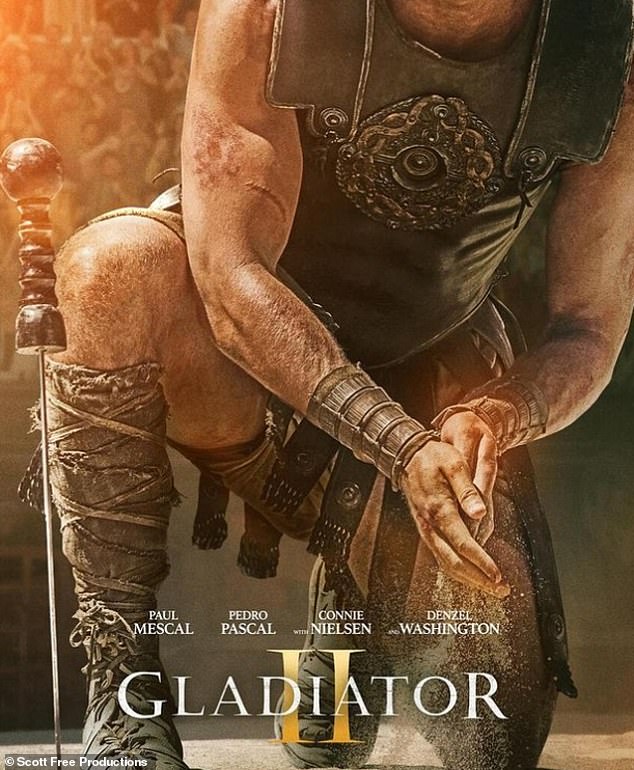
It’s been 20 years in development, but Ridley Scott’s sequel to Gladiator will finally hit theaters this November
The Roman Empire was a vast territorial empire that existed between 27 BC and 476 AD, extending across Europe and North Africa, with Rome at its center.
Professor Eleanor Dickey, a linguist in the University of Reading’s Department of Classics, said the Romans of the third century (the period in which Gladiator II is set) probably had multiple accents.
‘The empire was huge, so it makes perfect sense that people in the film speak with more than one accent,’ she told MailOnline.
Latin was the dominant language in the western half of the Empire, including Rome, while in the eastern half it was Greek. However, many other languages were also spoken in both halves.
‘The western half of the Empire includes present-day Italy, Switzerland, France, the Low Countries, Spain and Portugal, England and Wales, Romania, the former Yugoslavia and North Africa west of Egypt,’ Professor Dickey said.
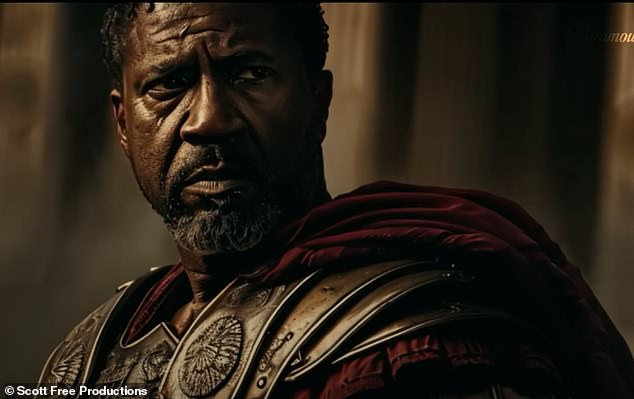
Denzel Washington plays Macrinus, a power broker who runs a stable of gladiators and sees the feisty Lucius as a promising investment (pictured)
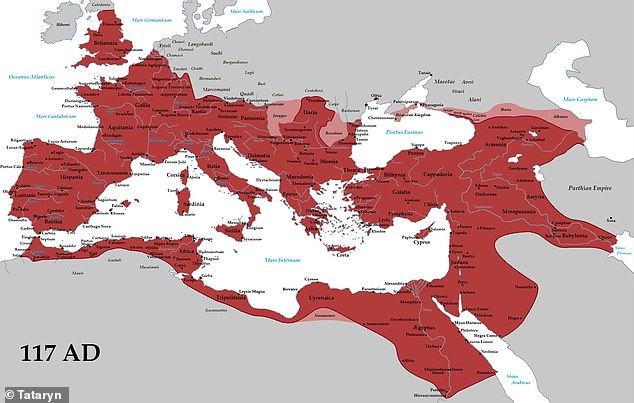
The Roman Empire was a vast territorial empire that existed between 27 BC and 476 AD, stretching across Europe and North Africa with Rome at its center. This map highlights the Roman Empire in red at its greatest extent (117 AD).
Nowadays, English is the universal language, so it was always unlikely that Ridley Scott would have his actors speak Latin, Greek or any other dialect in a major Hollywood blockbuster.
But in reality, 2,000 years ago, English was not spoken in Rome at all, or rather an early version of it.
‘At that time, English was not spoken in Rome, or anywhere else,’ Professor Dickey told MailOnline.
‘It is difficult to say exactly when a separate language that we might call ‘English’ first emerged, but I do not think it could have been as early as the third century.
‘However, languages related to English (that is, the precursors of German) were also sometimes spoken in Rome.’
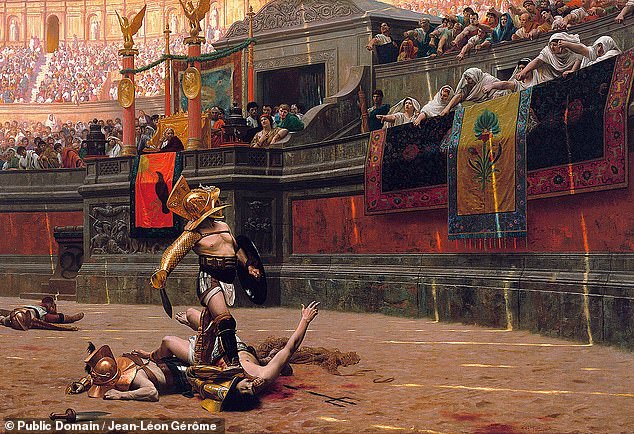
The vast venues would have hosted gladiatorial combats, chariot races and executions. Here, a gladiatorial combat is depicted in the Colosseum in Rome, in ‘Pollice Verso’, an 1872 oil painting by Frenchman Jean-Léon Gérôme
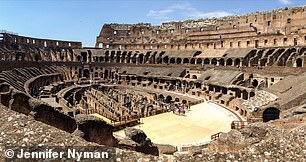
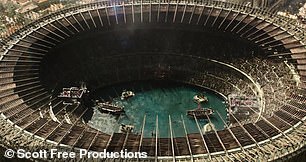
Bloody gladiatorial battles, often to the death, were fought in the Colosseum in Rome, depicted left and right in the new film
Dr Andrew Sillett, lecturer in classics at the University of Oxford, said we know little about what a Roman accent actually sounded like.
‘We know that in Roman history people paid attention to an accent when listening to other people speaking Latin,’ Dr Sillett told MailOnline.
‘Sometimes an accent was exotic, sometimes it was a cause for ridicule. Some people tried to hide theirs, others were proud of it and tried to emphasize it.’
In order to sound chic, speakers of Romance Latin used as many open vowels as possible.
To use a modern word as an example, they would have said ‘co-fee’ instead of ‘coffee’.
Dr Sillett explains: ‘It’s a bit like Manuel in Fawlty Towers: “Hellooooo, how aaare are you?”‘
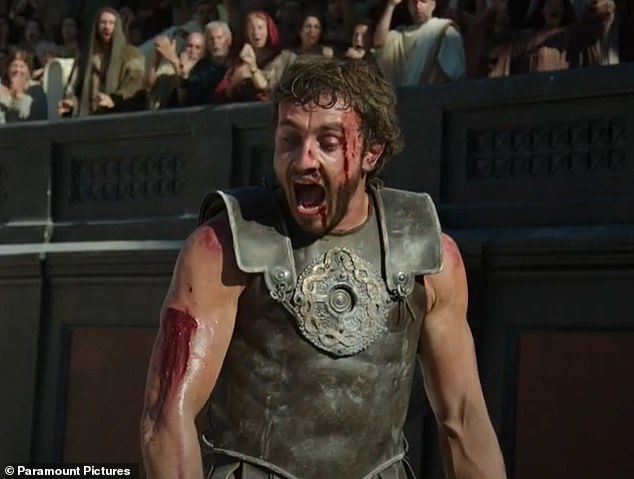
Decades have passed, but Maximus remains fresh in the memory as Paul Mescal’s Lucius picks up the sword in the first official trailer for Ridley Scott’s Gladiator II
The new trailer for Gladiator II doesn’t seem to adhere to these historical accuracy, but that’s probably not the filmmakers’ intention.
While the exact plot of Gladiator II is a closely guarded secret, it is expected to be a reinterpretation of Roman history while retaining some authentic aspects.
The film, which opens in the UK on 15 November, stars Paul Mescal as Lucius, grandson of former Roman Emperor Marcus Aurelius and son of Lucilla. After being enslaved, he must fight for his freedom as a gladiator.
Meanwhile, Denzel Washington plays Macrinus, a power broker who manages a group of gladiators and sees the combative Lucius as a promising investment.
